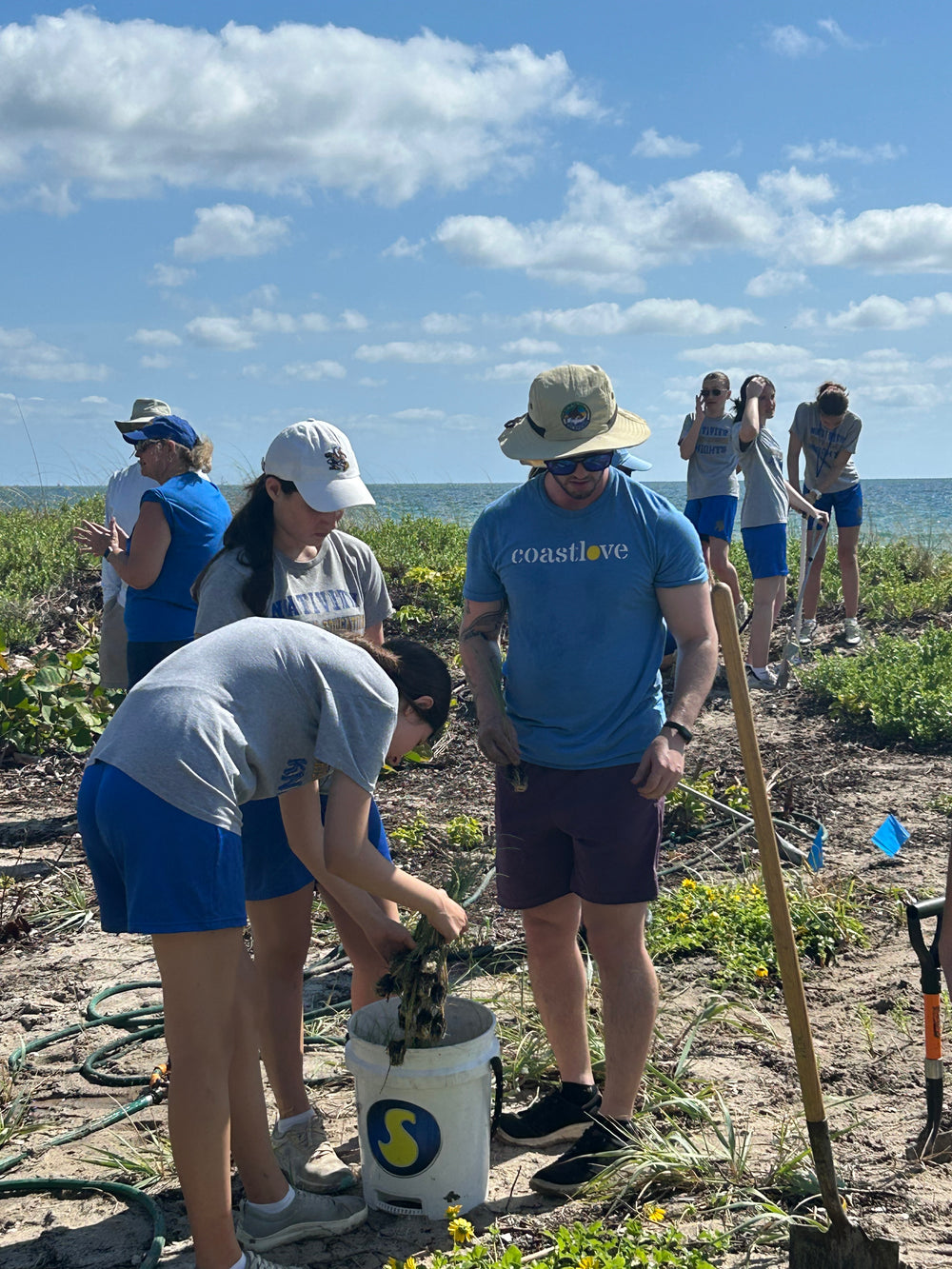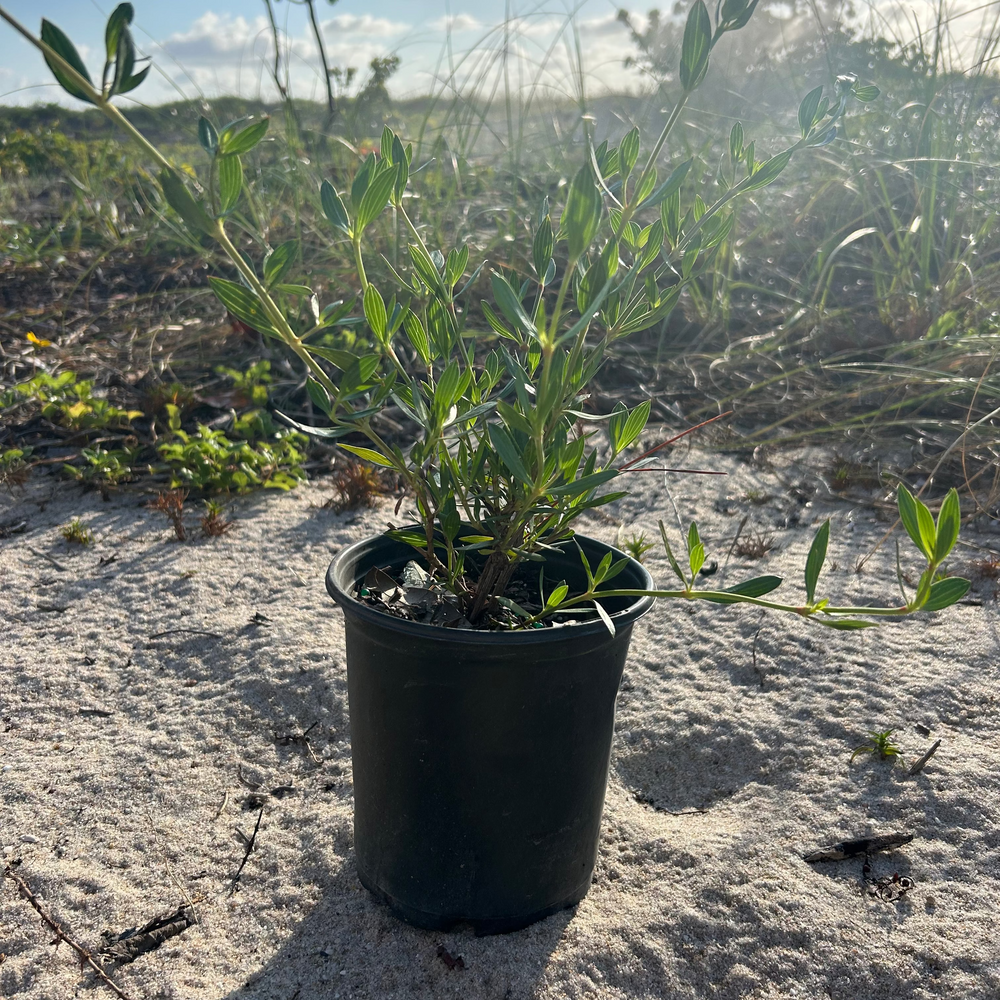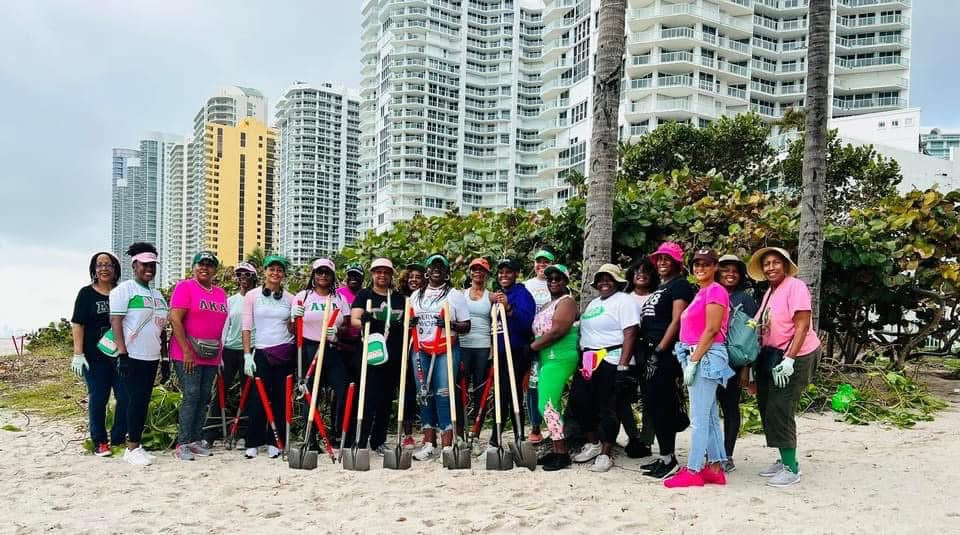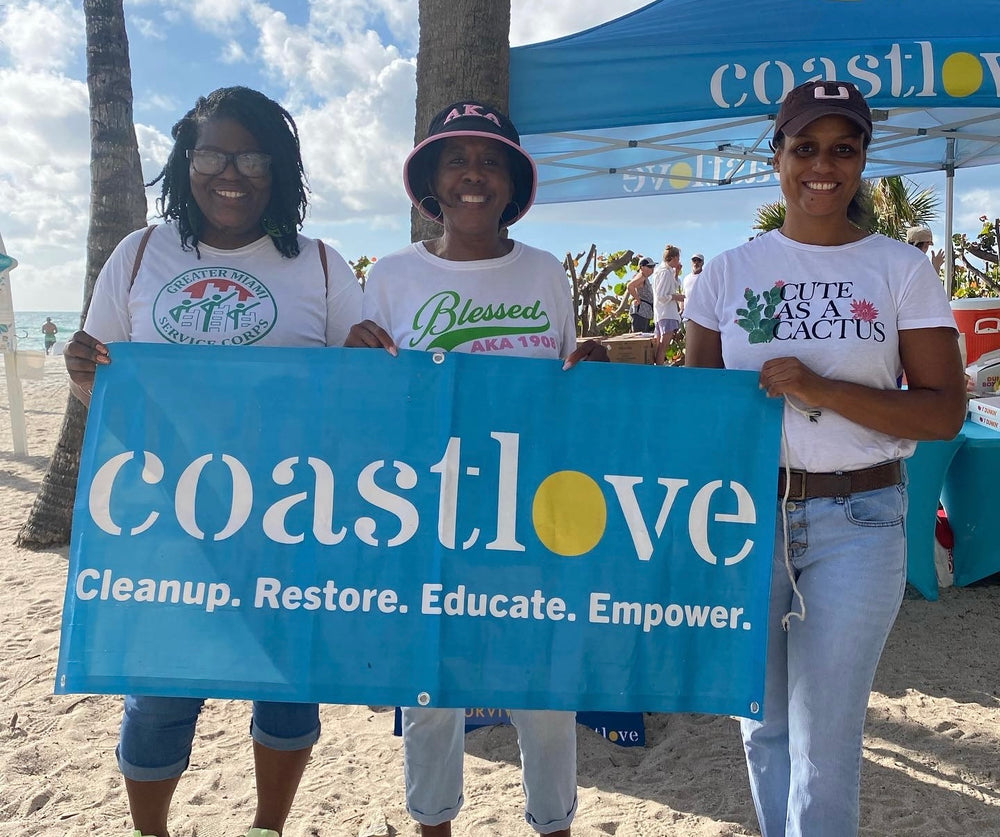Miami Coastal Watershed Restoration
Restoring dunes, biodiversity, and community resilience at Virginia Key Beach Park
Just one mile from downtown Miami, Historic Virginia Key Beach Park stands as a living piece of history and one of the city’s last remaining natural coastal spaces. Opened in 1945, it was the only African American beach and recreation area in Miami-Dade County—an essential community space where families gathered for dances, picnics, and reunions.
Today, the park remains a cultural and ecological landmark along Biscayne Bay. However, decades of coastal development, storms, and invasive vegetation have degraded the area’s coastal dune systems—natural buffers that protect shorelines, homes, and habitats from erosion and storm surge.
In partnership with Coastlove, Seatrees is helping to support the restoration of Virginia Key’s dune ecosystems by removing invasive plant species and planting native vegetation that strengthens shorelines, supports local biodiversity, and enhances climate resilience for Miami’s communities.

Why this project matters
Coastal dune systems are critical to the health of both people and the planet. They:
- Act as natural barriers against storm surge, flooding, and high winds
- Capture and store atmospheric carbon through deep root systems
- Provide nesting habitat for endangered sea turtles and migratory shorebirds
- Support native insects, pollinators, and other wildlife
- Help reduce urban heat and beautify community spaces
By restoring these dunes, this project not only rebuilds natural defenses—it also revives an iconic community space where culture, history, and nature come together.

What We're Planting
Native species observed and planted at the site include:
- Sea grape (Coccoloba uvifera)
- Sea oats (Uniola paniculata)
- Dune sunflower (Helianthus debilis)
- Beach elder, green buttonwood, and other coastal natives
These plants will replace invasive species such as Scaevola taccada, Brazilian pepper, and Australian pine, allowing native vegetation to thrive and biodiversity to rebound.
A pollinator garden will also be planted near the park’s flagpole area to attract bees, butterflies, and other native species.

A Lasting Impact
By restoring the dunes of Virginia Key Beach Park, this project will:
- Strengthen coastal resilience against storms and erosion
- Increase native biodiversity and pollinator habitat
- Create meaningful volunteer opportunities for the local community
- Honor and preserve a historically significant cultural site
- Help make Miami’s coastlines more climate-ready and vibrant for generations to coe

Project Timeline
This project will be implemented in two key phases:
- Phase 1: Invasive species removal
- Phase 2: Native planting and educational programming
Both phases will be followed by 24 months of ecological monitoring, led by Coastlove and partners, to ensure restoration success and long-term ecosystem recovery.
Monitoring will occur every three months during the first year to assess plant survival, dune stability, and biodiversity improvements.
Additionally, the City of Miami will support restoration by removing outdated grills and picnic tables from the dune areas and updating historical signage throughout the park.

Coastlove
CoastLove is a nonprofit organization passionately dedicated to the preservation and sustainable management of coastal environments. Their mission is to advocate for the health and resilience of coastal ecosystems, fostering a deep appreciation for the intricate balance between land and sea. Through community engagement, education, and proactive conservation initiatives, CoastLove strives to empower individuals to become stewards of our coastlines.
